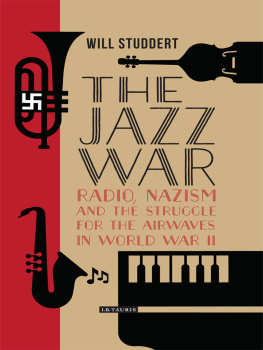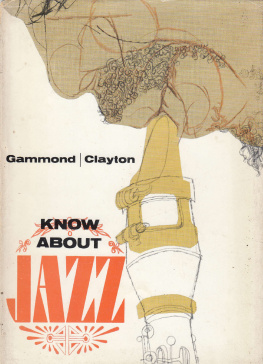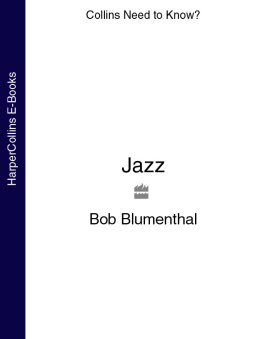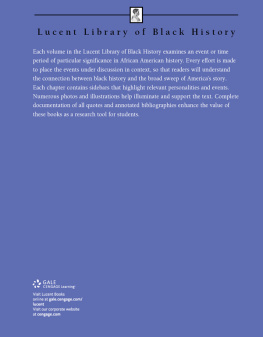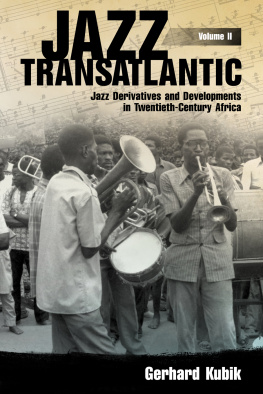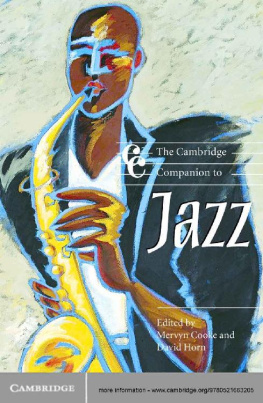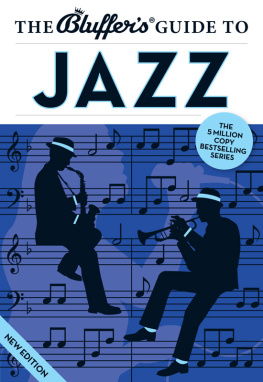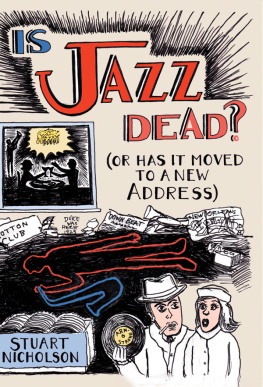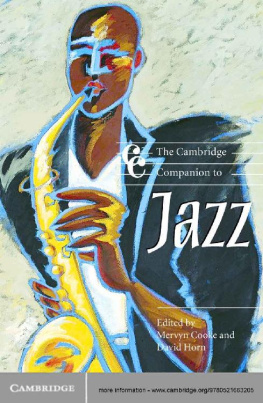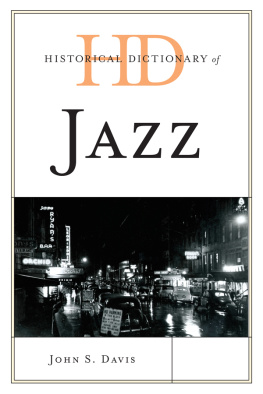Will Studdert completed his PhD at the University of Kent, where he specialised on the history of jazz and propaganda during World War II.
This revelatory book throws fresh light on the manner in which the widespread popularity of jazz was exploited by the Nazis for propaganda purposes in World War II. One does not require a knowledge of jazz history to recognise that Studderts critical analysis of the jazz war represents an important contribution to the historiography of World War II and its social and cultural impact is clear. A wide-ranging, perceptive and authoritative study.
David Welch, Professor Emeritus of Modern History and
Director of the Centre for the Study of War,
Propaganda and Society at the University of Kent

Published in 2018 by
I.B.Tauris & Co. Ltd
London New York
www.ibtauris.com
Copyright 2018 Will Studdert
The right of Will Studdert to be identified as the author of this work has been asserted by the author in accordance with the Copyright, Designs and Patents Act 1988.
All rights reserved. Except for brief quotations in a review, this book, or any part thereof, may not be reproduced, stored in or introduced into a retrieval system, or transmitted, in any form or by any means, electronic, mechanical, photocopying, recording or otherwise, without the prior written permission of the publisher.
Every attempt has been made to gain permission for the use of the images in this book. Any omissions will be rectified in future editions.
References to websites were correct at the time of writing.
Library of World War II Studies 1
ISBN: 978 1 78453 858 3
eISBN: 978 1 83860 943 6
ePDF: 978 1 83860 944 3
A full CIP record for this book is available from the British Library
A full CIP record is available from the Library of Congress
Library of Congress Catalog Card Number: available
For Olya
CONTENTS
Endsieg final victory
Gauleitung district leadership
Geheime Sonderdienststelle secret special agency
Heimat homeland
Kampfbund fr deutsche Kultur Combat League for German Culture
Kurzwellensender shortwave station
Machtergreifung Nazi seizure of power
Obersten Reichsbehrden top Reich authorities
Reichspropagandaleitung Reich Propaganda Leadership
Soldatensender armed-forces radio station
Sonderfahndungsliste G.B. special wanted list Great Britain
Truppenbetreuung troop entertainment
Vlkisch racial, ethnic
Volksempfnger peoples receiver
Wunschkonzert musical request programme
| ABC | American Broadcasting Company |
| BA | Bundesarchiv Berlin |
| BBC | British Broadcasting Corporation |
| BBC WAC | BBC Written Archives Collection, Caversham |
| CBS | Columbia Broadcasting System |
| COI | Office of the Coordinator of Information |
| CTASC | Clara Thomas Archives and Special Collections, York University, Toronto |
| DNB | Deutsches Nachrichtenbro (German News Agency) |
| DRA | Deutsches Runkfunkarchiv Frankfurt |
| DTU | Deutsche Tanz- und Unterhaltungsorchester (German Dance- and Entertainment Orchestra) |
| ENSA | Enterntainments National Service Association |
| FCC | Federal Communications Commission |
| JZD | Jazzinstitut Darmstadt |
| KWS | Kurzwellensender (Shortwave Station) |
| MBS | Mutual Broadcasting System |
| MEW | Ministry of Economic Warfare |
| MI5 | Military Intelligence, Section 5 |
| MoI | Ministry of Information |
| NA | National Archives, Kew |
| NAACP | National Association for the Advancement of Colored People |
| NARA | National Archives and Records Administration, College Park, Maryland |
| NFCL | National Federation for Constitutional Liberties |
| NID | Naval Intelligence Division |
| NJA | National Jazz Archive, Loughton |
| NSDAP | Nazionalsozialistische Deutsche Arbeiterpartei (National Socialist German Workers Party) |
| OCD | Office of Civilian Defense |
| OFF | Office of Facts and Figures |
| OKW | Oberkommando Wehrmacht (Armed Forces High Command) |
| OWI | Office of War Information |
| PID | Political Intelligence Department |
| POW | Prisoner of War |
| PWB | Psychological Warfare Branch |
| PWD | Psychological Warfare Division |
| PWE | Political Warfare Executive |
| RBTO | Radio Berlin Tanzorchester (Radio Berlin Dance Orchestra) |
| RKK | Reichskulturkammer (Reich Chamber of Culture) |
| RMK | Reichsmusikkammer (Reich Chamber of Music) |
| RMVP | Reichsministerium fr Volksaufklrung und Propaganda (Reich Ministry of Public Enlightment and Propaganda) |
| RRG | Reichs-Rundfunk-Gesellschaft (Reich Broadcasting Corporation) |
| RTK | Reichstheaterkammer (Reich Chamber of Theatre) |
| SD | Sicherheitsdienst des Reichfhrers-SS (Security Service of the Reichsfhrer-SS) |
| SHAEF | Supreme Headquarters, Allied Expeditionary Force |
| SOE | Special Operations Executive |
| SS | Schutzstaffel (Defence Corps) |
| SSD | Special Services Division |
| UK-Stellung (Unabkmm-lichstellung) | reserved occupation |
| VOA | Voice of America |
So it seems that Swing is mobilised and will play its part in the coming struggle.
B. M. Lytton-Edwards, Melody Maker,
October 1939
In the years spent working on my doctoral thesis and this resulting book, I have accumulated a number of personal and scholarly debts. I am particularly grateful to my supervisors at the University of Kent, Professor David Welch and Professor Ulf Schmidt, for sharing their expertise with me. Their convivial encouragement and patience during the research and writing of my PhD (and beyond) have been much appreciated, and both this book and I have benefited greatly from their insights, advice and criticism. The publication itself would not have been possible without the support and enthusiasm of Tomasz Hoskins, my editor at I.B.Tauris, and Florian Duijsens has copyedited the final draft with his trademark diligence and creativity.
The PhD was generously funded by a three-year studentship from the University of Kents School of History, and the Schools top-up fund allowed me to undertake research trips to Darmstadt, College Park and Toronto. It was at York University, Toronto, that I was able to access the wealth of material collected by Professor Michael H. Kater during the research for Different Drummers, his seminal work on jazz in Nazi Germany, and which is now housed at the Clara Thomas Archives and Special Collections. I thank Professor Kater for his permission to use these remarkable resources, which constitute the bulk of the German oral history cited in this book; in the absence of surviving protagonists, the interviews and correspondence with musicians and aficionados from the Third-Reich jazz scene have been invaluable. Another influential figure in the field, Dr Rainer E. Lotz, co-author of the groundbreaking

